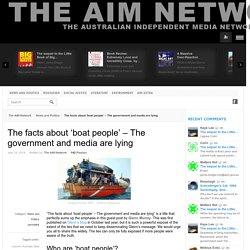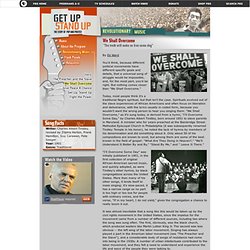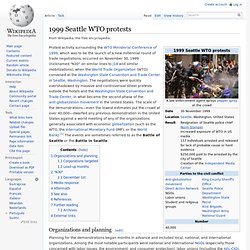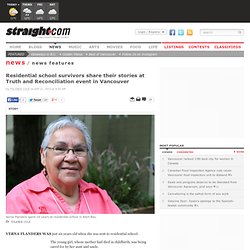

Indigenous Rights. COLD WAR. The facts about ‘boat people’ – The government and media are lying. “The facts about ‘boat people’ – The government and media are lying” is a title that perfectly sums up the emphasis in this guest post by Glenn Murray.

This was first published on Glenn’s blog in October last year, but it is such a powerful exposé of the extent of the lies that we need to keep disseminating Glenn’s message. We would urge you all to share this widely. The lies can only be fully exposed if more people were aware of the truth. Who are ‘boat people’? ‘Boat people’ are asylum seekers who arrive by boat, without a valid visa or any other appropriate authorisation.
Are ‘boat people’ doing something illegal? No. Everyone has the right to seek and to enjoy in other countries asylum from persecution.” The terms, ‘illegal immigrants’, ‘illegals’, etc., are completely incorrect. The 2012 UNHCR Guidelines on Detention explain it in plain English: Is Australia obligated to help them? Yes. If It Were My Home. Digital Public Library of America. Top 10 Most Evil Humans. Crime As we approach the new year, I thought it would be appropriate to do a list that combines and ranks entries from a combination of related lists – a summary list.

This list looks at the last three years of lists of evil men and women, and combines and ranks the worst of the worst. Children are excluded as the evil children don’t rank anywhere near the evil of adults seen in the past. I have also added one entry who has not appeared on other lists, but is definitely worthy of inclusion. If you disagree with my ranking (as no doubt many will) be sure to tell us in the comments – perhaps include your own ranking, too. The World Factbook. Get Up, Stand Up . Revolutionary Music . We Shall Overcome. By Ed Ward You'd think, because different political movements have different specific goals and details, that a universal song of struggle would be impossible, and, for the most part, you'd be right.

But nothing comes closer than "We Shall Overcome. " Today, most people think it's a traditional Negro spiritual, but that isn't the case. Spirituals evolved out of the slave experiences of African Americans and often focus on liberation and deliverance, with the lyrics usually in coded form, because you wouldn't want the wrong person to hear you singing them. "We Shall Overcome," as it's sung today, is derived from a hymn, "I'll Overcome Some Day," by Charles Albert Tindley, born around 1851 to slave parents in Maryland. "I'll Overcome Some Day" was initially published in 1901, in the first collection of original African-American sacred music, and quickly adopted, as were Tindley's other hymns, by black congregations across the United States.
1999 Seattle WTO protests. Organizations and planning[edit] Planning for the demonstrations began months in advance and included local, national, and international organizations.

Among the most notable participants were national and international NGOs (especially those concerned with labor issues, the environment, and consumer protection), labor unions (including the AFL-CIO), student groups, religiously-based groups (Jubilee 2000), and anarchists (some of whom formed a black bloc).[2] The coalition was loose, with some opponent groups focused on opposition to WTO policies (especially those related to free trade), with others motivated by pro-labor, anti-capitalist, or environmental agendas. Many of the NGOs represented at the protests came with credentials to participate in the official meetings, while also planning various educational and press events. The AFL-CIO, with cooperation from its member unions, organized a large permitted rally and march from Seattle Center to downtown. Corporations targeted[edit]
Top ten tips when communicating with deaf people. Migration Museum. Racism. Nelson Mandela's Life Story. Our-Basic-Human-Rights.jpeg (JPEG Image, 600 × 3012 pixels) - Scaled (33%) Stories of residential school survivors. The young girl, whose mother had died in childbirth, was being cared for by her aunt and uncle.

“But I came into the wrong hands when I was six,” Flanders told attendees at the Truth and Reconciliation Commission this week. As TRC commissioners Marie Wilson and Chief Wilton Littlechild listened, Flanders described the sense of sheer isolation and loneliness that she felt as a boarding student at St. Michael’s Indian Residential School in Alert Bay. For 10 years, she missed out on typical childhood experiences, like knowing what it was like to celebrate a birthday, or going home to see her family for Christmas. She grew up without parents, spending a decade of her life, as she remembers it, “behind brick walls”.
“I felt so alone,” she said, through tears. As Flanders shared her story, her sons sat on either side of her, reaching over at times to place a comforting hand on her shoulder. Some talked about the ways in which their experiences continue to haunt them.